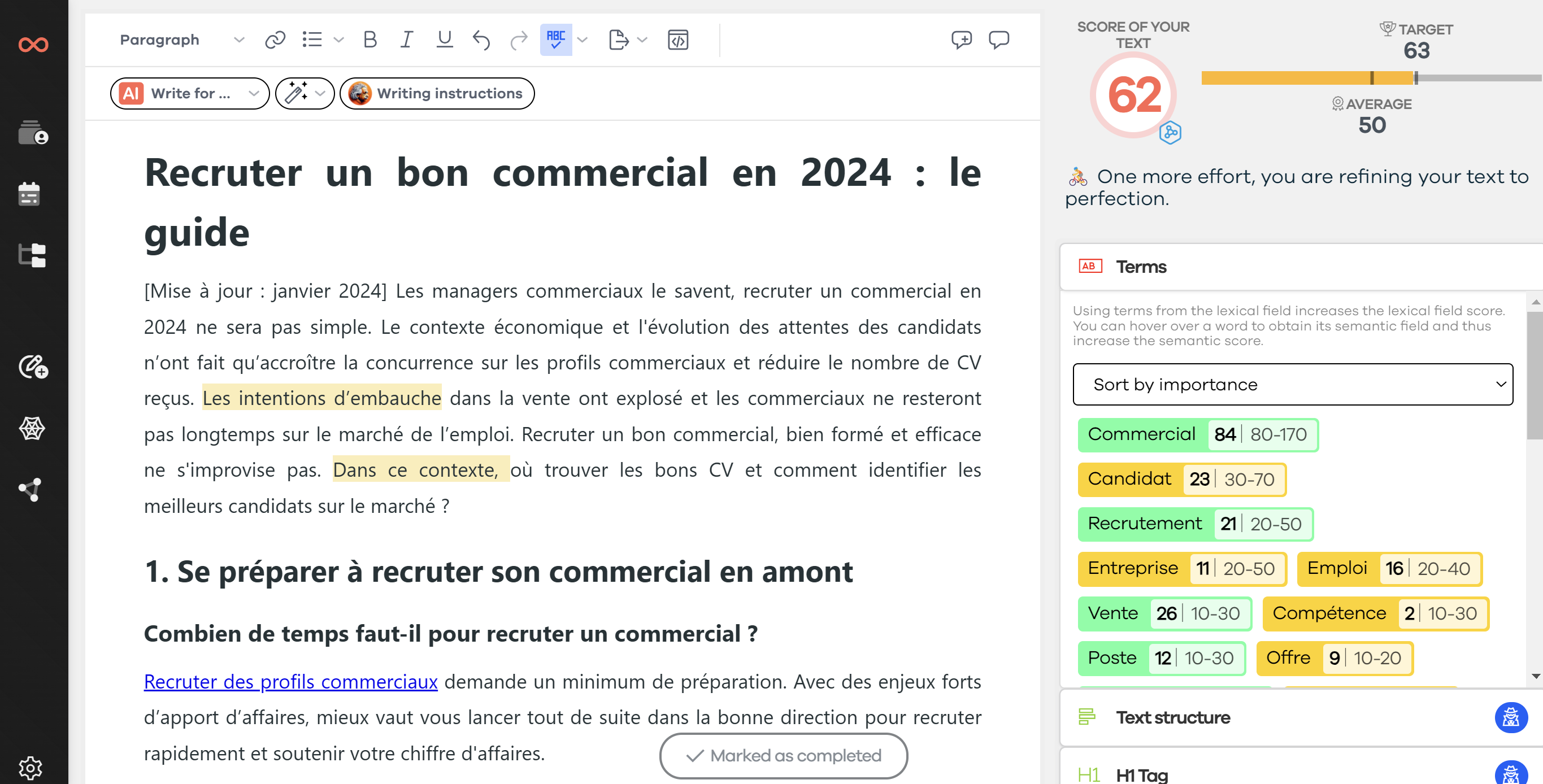The ranking of your site in the Google search engine results pages is not a matter of chance! The higher it is, the more it meets the ranking criteria imposed by Google. You probably already know this, but there are dozens of them, each with varying degrees of importance. Algorithm updates take place regularly, so it's important to stay informed about significant changes (core web updates).
In 2020, Google announced the introduction of new ranking criteria for Google Page Experience. The algorithms are now capable of measuring user experience (UX). How does this work and what factors should be considered? We'll tell you everything!
❓ What is Google Page Experience?
For several years now, user experience has been at the heart of SEO. Google Page Experience is an algorithm that allows Google to understand how a user navigates the different pages of a website and what their experience as a user is. The goal is to detect any navigation flaws that could undermine the user experience.
User experience, or UX for short, already had a significant place at Google, but it became central as of May 2021. The update to Google Page Experience had a considerable impact on the organic SEO of many websites. SXO (Search eXperience Optimization) is a SEO trend not to be overlooked in 2023!
Google Page Experience is ultimately a search ranking factor that encompasses all facets of the UX calculated through what Google calls signals. A good experience on your pages will allow you to rank well on the Google search engine.
Google chose to value user experience from 2021 in order to favor the most efficient websites and gain users' trust. Before mobile connections surpassed those on computers, Google's algorithm focused on highlighting unique and quality content based on the E-A-T criteria (Expertise - Authority - Trust), which highlighted expertise, authority, and content reliability. This is still the case, but UX has also become an essential factor not to be overlooked.
🚦 Google Page Experience's web signals
Google Page Experience is a combination of three performance indicators called Core Web Vitals. I will explain what each of them does and how Google calculates their score. Using Google's Search Console, you can get a report describing how well your site matches these 3 criteria.[1]
1. LCP - Largest Contentful Paint
This indicator measures the loading performance of a page and therefore the time it takes for the content to be fully downloaded and visible to the user. Google thus advises sites to ensure that their LCP score is at most equal to 2.5 seconds. If it is more than 4 seconds, the site will be considered "poor".
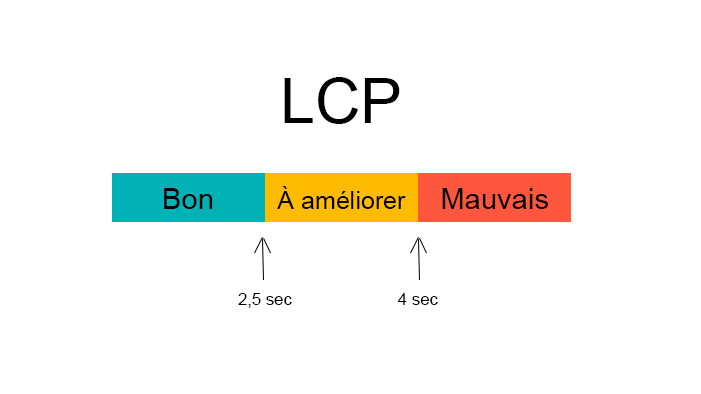
2. FID - First Input Delay
FID measures the time elapsed between when the user interacts with the page (example: clicking on a link) and when the browser is able to respond to this action. Google aims for sites to be interactive and responsive as quickly as possible.
Your score should not exceed 100 ms, which is the time it takes to blink. Your site must be ready to respond, or risk missing sales, transactions, or other types of conversions. A score above 300 ms is considered bad.
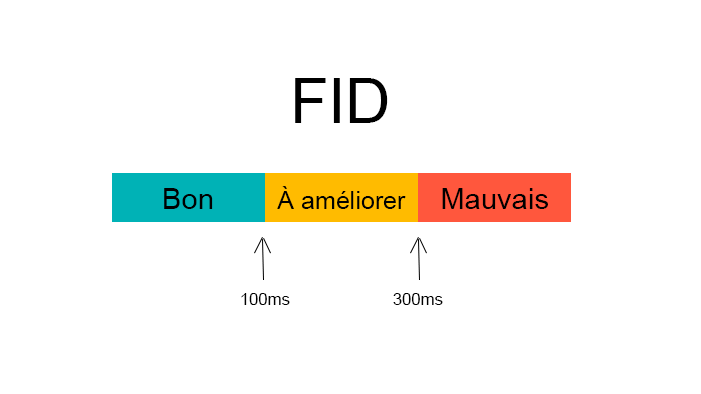
3. CLS - Cumulative Layout Shift
This is a score that measures the visual stability of a website's pages by calculating the frequency of unexpected layout changes that occur when a user navigates. This could be a page that moves unpredictably while you are reading, often caused by an image or video with incorrect dimensions, a font issue, an ad, or a poorly resizing widget.
CLS data takes into account the size of a moving element and its distance of displacement. A score below 0.1 is considered good and bad if it is above 0.25.
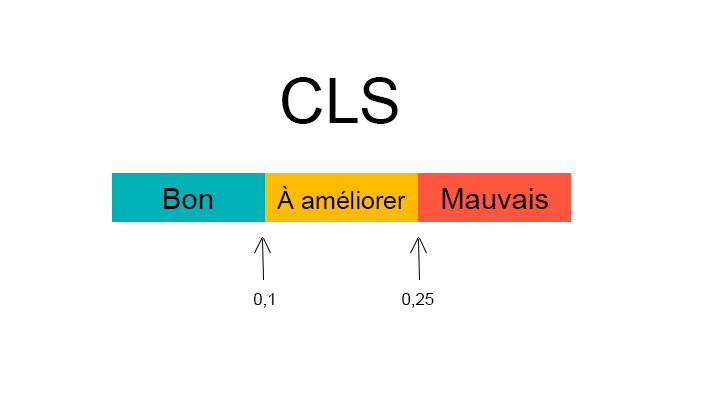
🔨 The impact of Google Page Experience on organic SEO
We can't stress this enough, but organic SEO is essential for the success of all websites. Unfortunately, optimizing your site properly can sometimes be more complex than it seems, especially since Google regularly updates its algorithms.
Below, I explain how to adapt your site to Google Page Experience.
For site owners, this means it's probably time to optimize your site by focusing on the new signals. These are still scores to achieve that will impact the ranking of your pages.
You will need to optimize your pages more than ever for these new parameters in order to maximize their position. This update had significant effects on the ranking in organic search results, don't overlook these factors!
To date, Google has not yet published information about the new factors and how they are calculated. However, the search engine has clearly announced that content quality will remain the most important factor, with user experience only becoming a decisive factor when many pages are similar in terms of relevance and content quality.
We do know that while the SEO value of content that meets E-A-T criteria does not change, Google Page Experience indicates that the focus is now more than ever on mobile ergonomics. The quality of a web page on mobile and the UX can be summarized in 4 main factors.[2]
1. Mobile ergonomics
Google has chosen to retain three essential criteria, although there are many other quality factors:
- taking into account different screen sizes and different types of devices,
- ease of reading content and visuals and interacting with them,
- use of modern and available technology.
2. Loading
The loading of a page, a site is an undeniable performance factor. Performance includes both the time needed to load the basic content of a page (texts, buttons...) and the time to load heavier elements (images, animations, videos...).
3. Accessibility
UX must include ALL users. The Google search engine therefore considers website accessibility to be essential and central. Good accessibility has a number of technical advantages that contribute to improving their ranking in search engines, such as descriptive links, alternative texts, videos containing keywords...
4. Intrusive elements
You've probably been interrupted by popups when browsing a site, right? They are usually made to promote a promotion or invite you to subscribe to the newsletter. They almost always interrupt your navigation. Google agrees with users that these kinds of elements diminish the quality of the user experience. Websites that overuse this type of tool will be penalized.
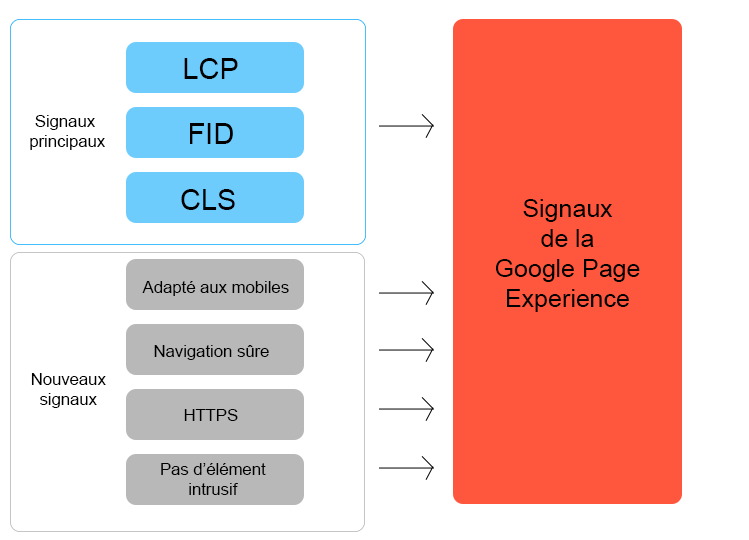
Yet another Google update that has not gone unnoticed and has had a considerable impact on your SEO. The search engine is increasingly making user experience a key element in organic SEO. Don't miss out!
To check the quality of your site according to Google Page Experience, I invite you to discover the tools that allow you to check the user experience and improve it.
🙏 Sources used to write this article
[1] https://support.google.com/webmasters/answer/9205520?hl=fr
[2] https://developers.google.com/search/docs/appearance/page-experience?hl=fr
Need to go further?
If you need to delve deeper into the topic, the editorial team recommends the following 5 contents:

